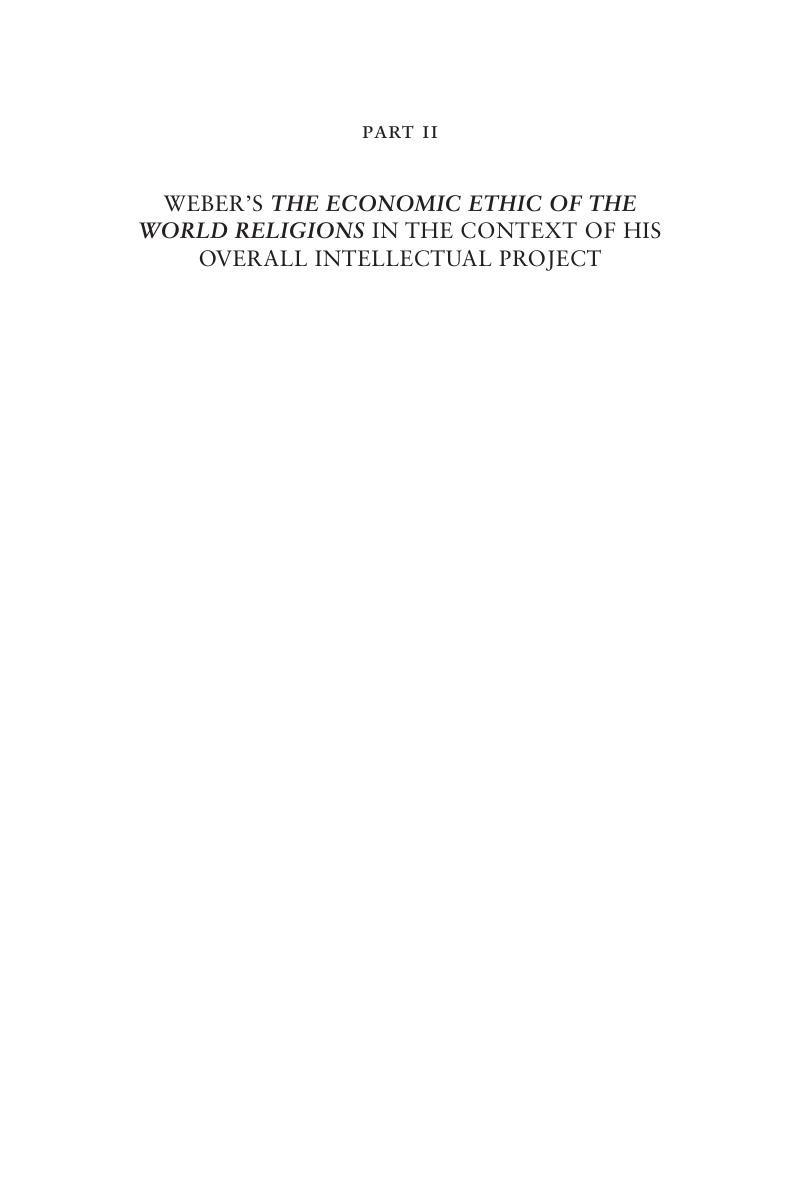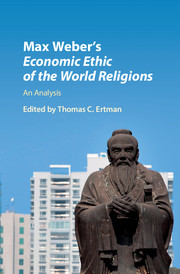Book contents
- Max Weber’s Economic Ethic of the World Religions
- Max Weber’s Economic Ethic of the World Religions
- Copyright page
- Contents
- Contributors
- Acknowledgments
- Abbreviations of Weber’s Works
- Part I Introduction
- Part II Weber’s The Economic Ethic of the World Religions in the Context of his Overall Intellectual Project
- Part III Reassessing Weber on China
- Part IV Reassessing Max Weber on India
- Part V Reassessing Max Weber on Ancient Israel
- Part VI Conclusion
- Index
- References
Part II - Weber’s The Economic Ethic of the World Religions in the Context of his Overall Intellectual Project
Published online by Cambridge University Press: 28 April 2017
- Max Weber’s Economic Ethic of the World Religions
- Max Weber’s Economic Ethic of the World Religions
- Copyright page
- Contents
- Contributors
- Acknowledgments
- Abbreviations of Weber’s Works
- Part I Introduction
- Part II Weber’s The Economic Ethic of the World Religions in the Context of his Overall Intellectual Project
- Part III Reassessing Weber on China
- Part IV Reassessing Max Weber on India
- Part V Reassessing Max Weber on Ancient Israel
- Part VI Conclusion
- Index
- References
Summary

- Type
- Chapter
- Information
- Max Weber's Economic Ethic of the World ReligionsAn Analysis, pp. 37 - 84Publisher: Cambridge University PressPrint publication year: 2017



